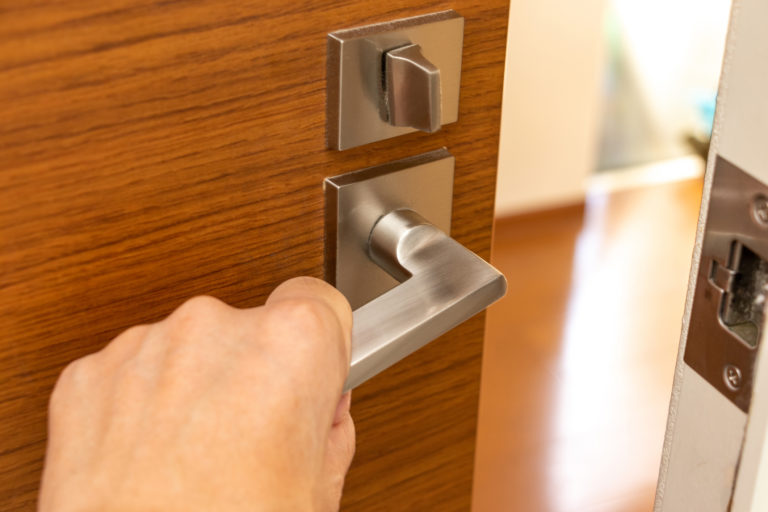Your locks are the first barrier against unwanted access to your home, workplace, or vehicle. They play a vital role in safeguarding your belongings, protecting loved ones, and maintaining privacy. However, a lock’s effectiveness is only as good as its use. To ensure your locks offer maximum security, it’s important to adhere to essential lock safety tips. Below are some helpful tips to ensure your property remains safe.
Invest in Premium Quality Locks
Choosing high-quality locks is the most important step in lock safety. Cheap or low-quality locks can compromise your property’s security and make it easier for burglars to break in. Opt for high-security locks that meet established industry standards and offer resistance to tampering, picking, and drilling. Look for locks with certifications, such as Grade 1 locks by the American National Standards Institute (ANSI), which are considered the best choice for residential and commercial use.
Replace Old Deadbolts with High-Quality Upgrades
When it comes to securing your home, deadbolts are one of the most reliable options. Upgrading your current locks to high-quality deadbolts can provide enhanced security. Look for deadbolt locks with a one-inch throw, which extends the bolt deeper into the door frame for added strength. Opt for a lock that is keyed on both sides to boost security. A double-cylinder deadbolt, which requires a key to unlock both the inside and outside, is especially effective at preventing break-ins through glass windows near the door.
Install Keyless Smart Locks for Extra Convenience
As technology evolves, smart locks have emerged as a top choice for both homeowners and businesses. These locks allow for keyless entry through smartphones, keypads, or biometric methods like fingerprints. Many smart locks also feature the ability to monitor who enters and exits your property and provide alerts if the door is left unlocked. To avoid hacking risks, always opt for a reputable brand with high-level encryption to ensure security.
Secure Your Home by Locking Doors and Windows
It might seem basic, but one of the most effective ways to avoid break-ins is to always lock your doors and windows. Often, people forget to lock up when they’re at home or stepping out briefly, leaving their property vulnerable. Always check that your doors and windows are securely locked, whether you’re in the backyard or running errands. It’s also crucial to lock up before going to bed, even if you live in a safe area.
Keep Spare Keys Securely with Trusted Individuals
While hiding a spare key outside is a common practice, it can expose your home to security risks. Burglars know where to look—under the doormat, in flower pots, or in fake rocks. Instead of hiding a key, leave one with a trusted neighbor or use a key lockbox that only trusted individuals can access. If you must hide a key, choose a discreet location and consider using a high-security lockbox or a biometric safe for added safety.
Rekey All Locks to Ensure Your Home’s Security
If you’re moving into a new home or office, rekeying your locks is crucial. You can’t be sure if the previous owners or tenants handed out keys to others, such as family, friends, or maintenance staff. Rekeying is an affordable solution that ensures only you have keys to your property. It’s a simple procedure where the lock’s internal mechanism is modified so old keys no longer work, and you receive new keys.
Use a Secure Lock Box for Key Storage
Instead of hiding spare keys outside, consider installing a lock box near your front door for secure key storage. A lock box is a small, metal container with either a combination or key entry, designed to keep spare keys safe from unauthorized access. This is an excellent way to ensure that only trusted individuals can retrieve your spare keys. Lock boxes are especially useful for those who rent out their home or have frequent visitors.
Keep Your Locks in Good Condition with Regular Checks
Maintaining your locks regularly is crucial to keep them functioning as they should. Exposure to weather, daily wear, and tear can cause locks to become stiff, rusty, or less secure. Be sure to inspect your locks periodically for any signs of damage or issues. Apply graphite powder or a lock-specific lubricant to keep them working smoothly. If you find a lock that’s difficult to turn or a key that’s sticking, it’s important to fix or replace it as soon as possible.
Only Share Keys with Trusted People
While sharing keys might seem convenient, it can expose you to significant security risks. Even if you trust the people you’re giving keys to, there’s no guarantee they haven’t made extra copies or shared them with others. Limit key distribution to trusted individuals only, and consider using smart locks or temporary access codes if you need to provide access to multiple people. If you give a key to a service worker, always ensure you retrieve it afterward and never leave it unattended.
Fortify Entryways Using Security Bars or Reinforced Frames
To enhance your security, think about adding security bars to sliding doors or windows, which are commonly targeted in break-ins. Reinforcing door frames is another step that can increase strength and make it harder for criminals to kick in your doors. Many burglars focus on areas where locks are easier to bypass, so taking these extra measures can significantly lower the chance of a break-in.
Install a Peephole to See Who’s at Your Door
An essential lock safety measure is installing peepholes or door viewers on your entry doors, especially the front door. These devices allow you to identify who’s at the door before you open it, which is critical for avoiding unexpected visitors or potential threats. Many modern digital door viewers come with video features and can notify you when someone is near the door, offering you extra peace of mind, particularly if you’re home alone.
Don’t Leave Old Keys Accessible—Dispose of Them Securely
Old keys that are no longer in use can create a security risk if they end up in the wrong hands. Rather than throwing them away, make sure to dispose of them securely by cutting them up or having a locksmith destroy them. Never leave old keys around where they could be found and used to access your home or business.
Locks are essential to protecting your home or property, but their effectiveness depends on how well they are maintained and used. By following these key lock safety tips, you can significantly lower the risk of break-ins or unauthorized access to your property. Invest in high-quality locks, perform regular maintenance, and stay vigilant in making sure your doors and windows are securely locked. Good lock safety is a simple yet powerful way to ensure your home or business is secure and free from unwanted visitors.

